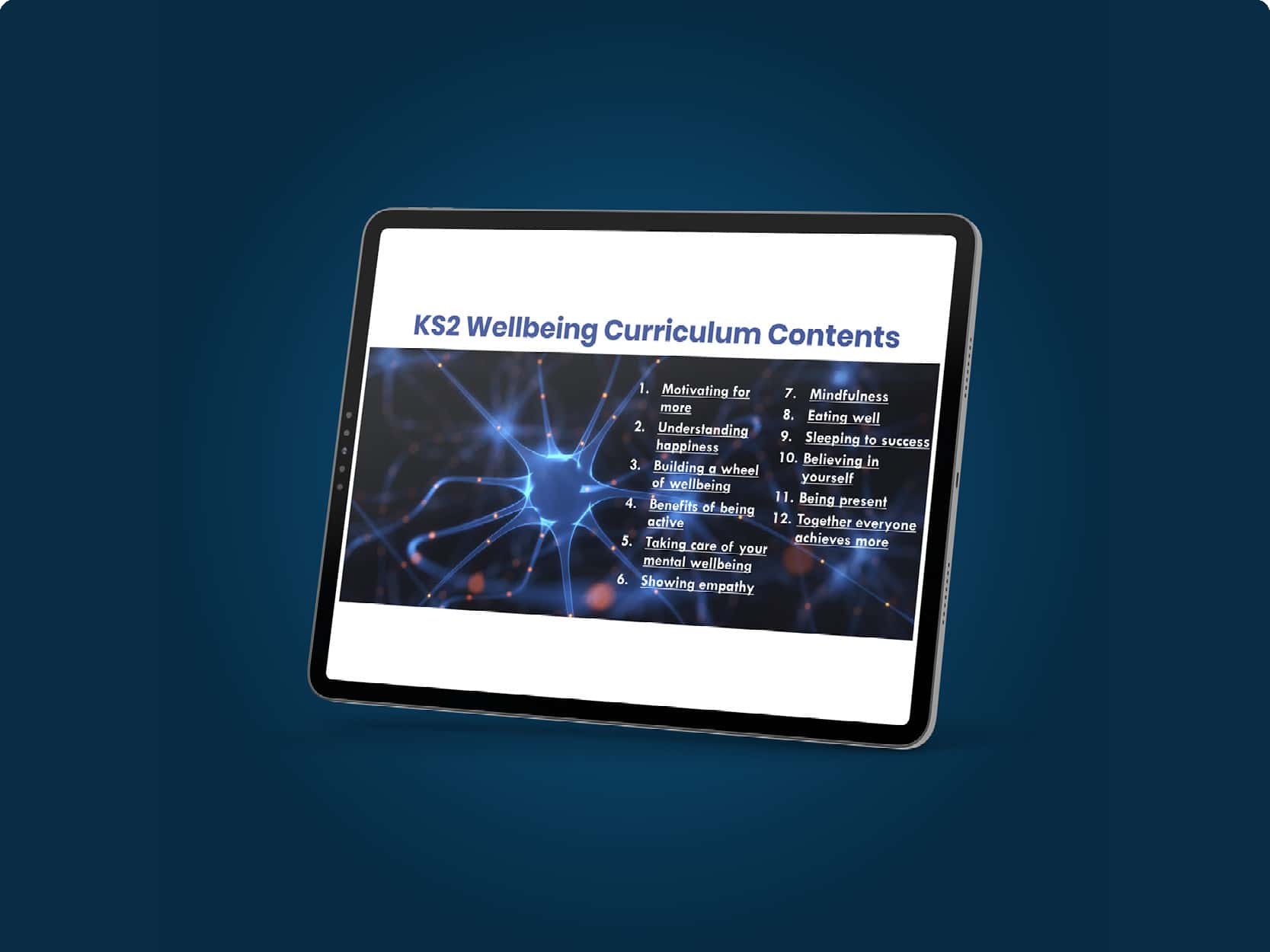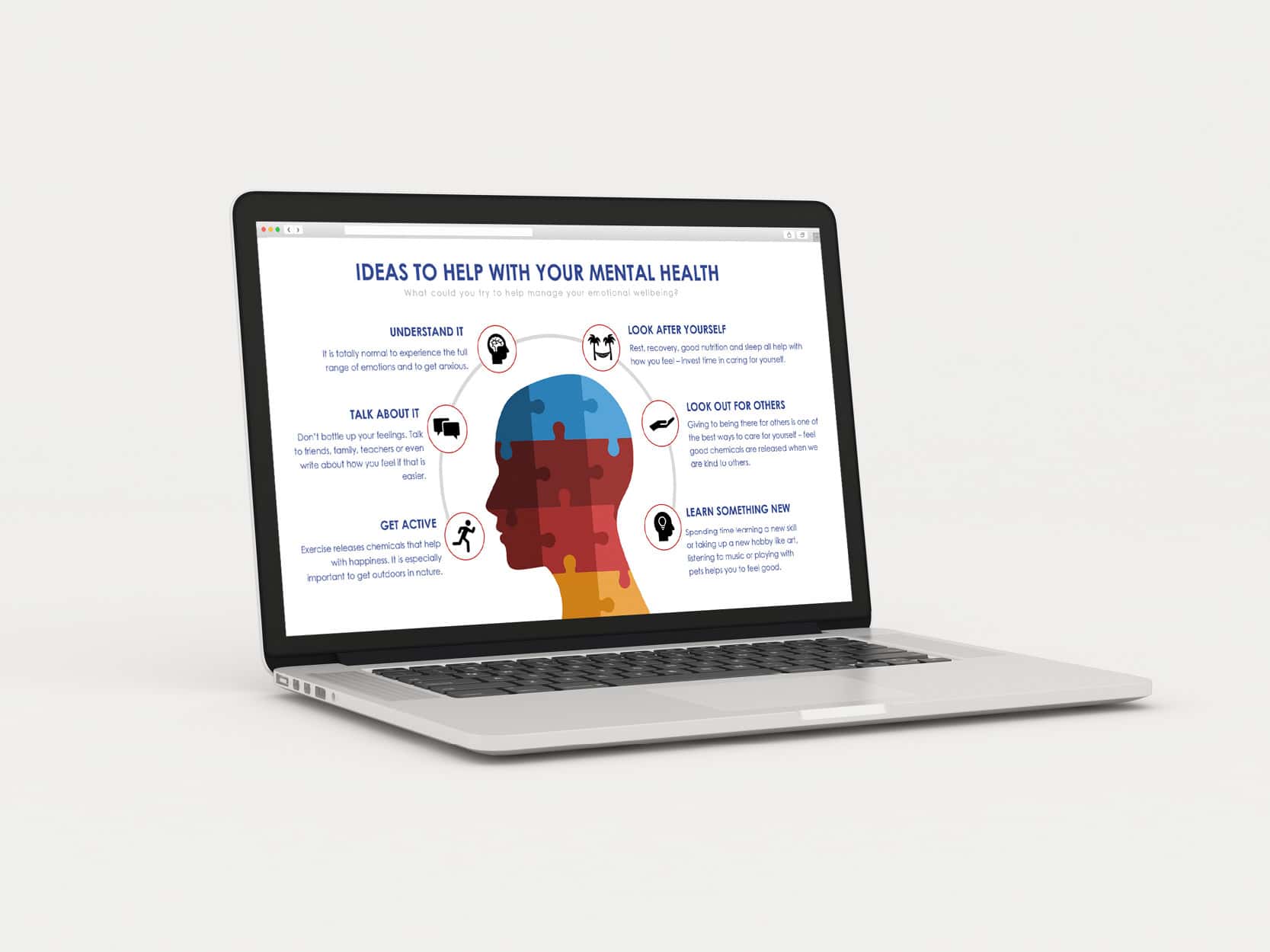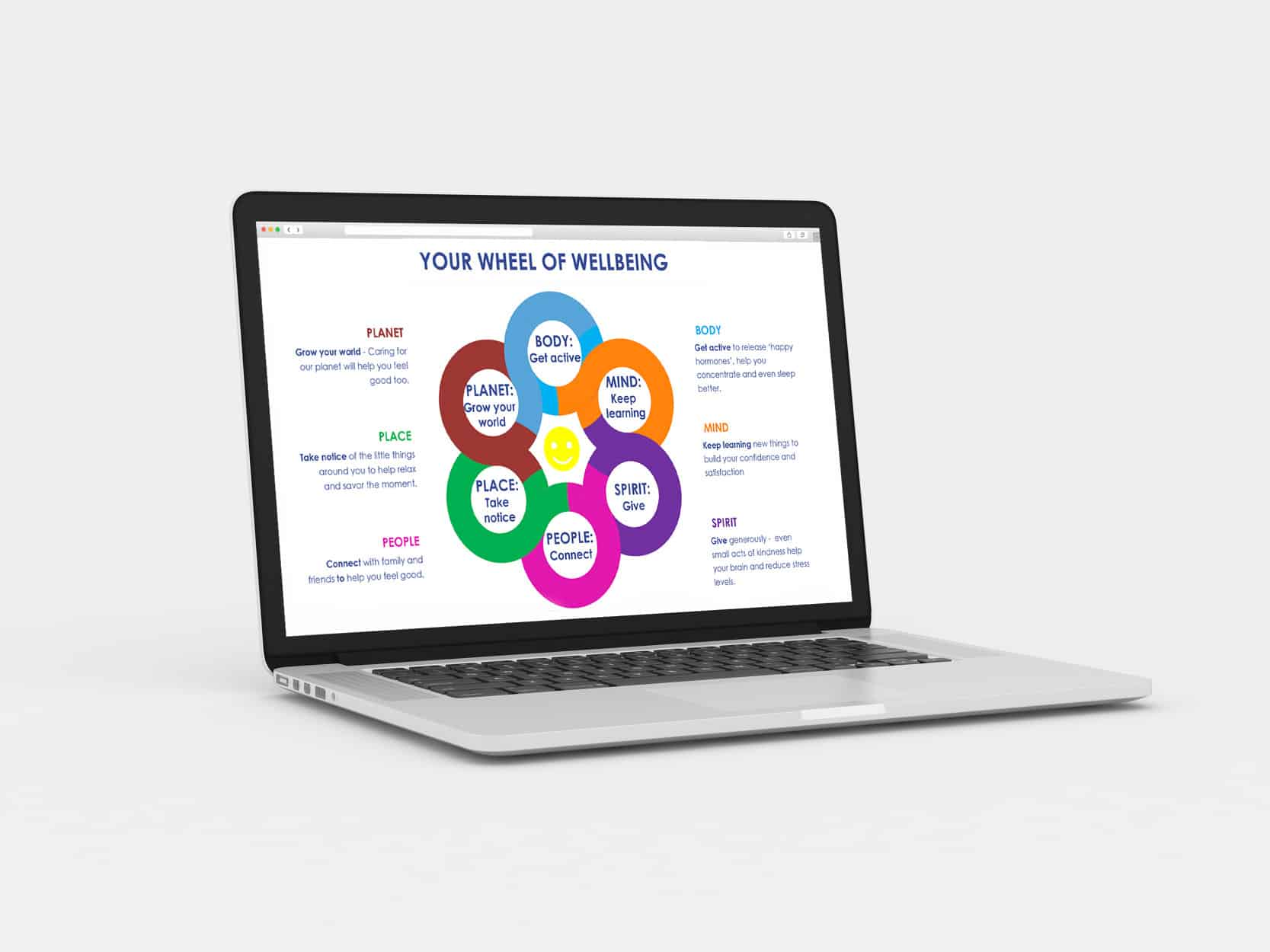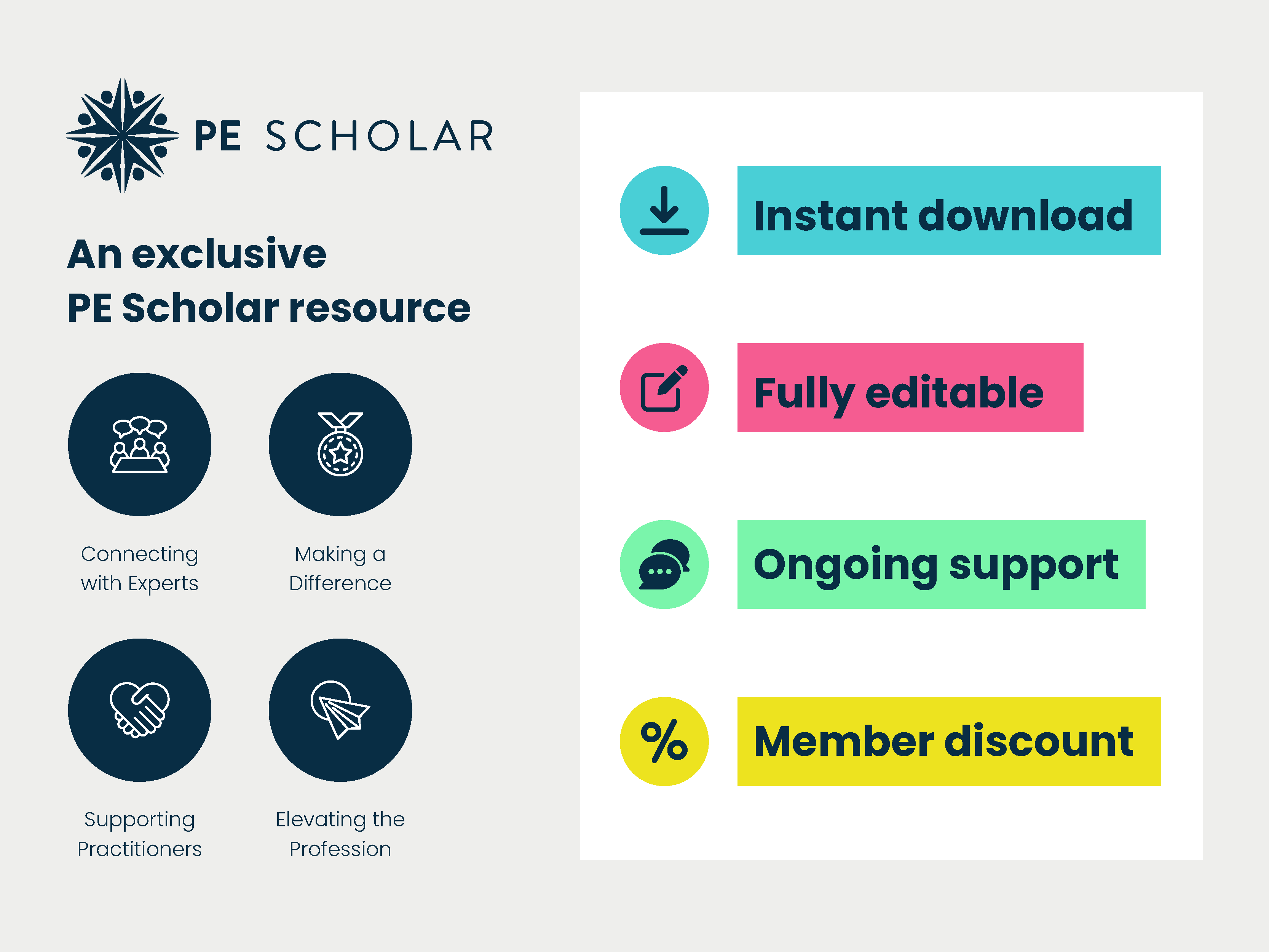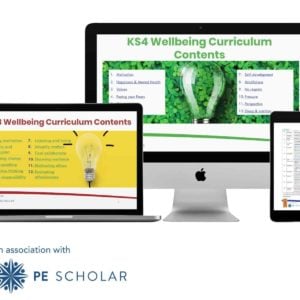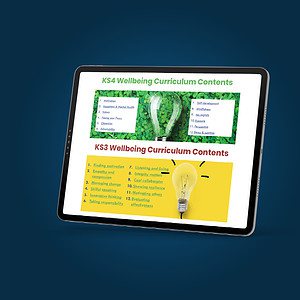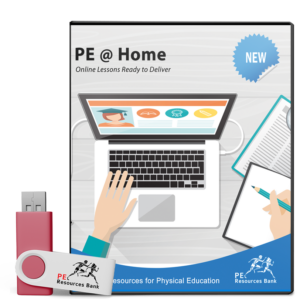Description
Complete Wellbeing Curriculum for Key Stage 2 (Primary)
As schools re-open from Covid-19, this Key Stage 2 Wellbeing Curriculum resource (developed by Will Swaithes (The Learning Locker) and in association with Dr Liz Durden-Myers (PE Scholar)) provides an excellent foundation for classroom or distance learning of essential aspects of Physical Education and the RSE and Health Education curricula. Immediate priorities have shifted somewhat, and whilst we must ensure physical education is delivered in a practical setting as much as possible to develop physical literacy and a lifelong love of movement, with challenges around social distancing, changing room use and wet weather potentially rendering safer outside spaces for physical activity unusable at times, this resource is aimed at supporting meaningful classroom-based learning to deliver the broader aims of physical education. Adversity has enabled us to seek opportunities to achieve more through the physical education offer – to capitalise on the unique learning potential and established PE teacher rapport with students to effectively deliver against aspects of the Relationship and Health Education in addition to PSHE curricula that will also help meet the Personal Development strand of Ofsted’s Education Inspection Framework.
What’s in the Complete Wellbeing Curriculum for Key Stage 2 (Primary) package?
A sequence of 12 lessons have been developed, suitable for upper key stage 2 into transition (ages 7-12) and in line with the materials already produced and proving very popular in secondary schools. To ease planning and preparation requirements on teachers at this stressful time, they will require minimal adaptation for separate year groups beyond the tailoring of support and questioning that would normally be expected to challenge individuals. That said, all resources are fully editable, and you are encouraged to adapt them to best meet the needs of your context and individual class requirements using the framework provided.
Lessons
Each lesson is structured with an A.S.K of students – success criteria around Attitudes, Skills, and Knowledge. The lessons are arranged with four main parts:
- Do now – an arrival activity to get students settled, thinking, and sharing what they know already about the given topic
- Do you remember – an opportunity to recap learning from the previous lesson and discuss challenges the students have engaged with before sharing the A.S.K of today’s lesson
- Dig deeper – an opportunity to understand more, often with a high impact diagram and/ or audio-visual links to help bring the content to life
- Reflect and challenge – a framework to support metacognition, target setting and a stretch challenge relating to the core theme of the lesson to be completed for homework
The following overview of lessons has a fairly progressive flow and is supported by a student workbook if you want to capture learning utilising the templates provided. However, you could also consider a mix and match (interleaving) approach once you become more familiar with the content. You may decide that the lesson titles become great weekly or fortnightly themes to focus on across school with dedicated input in assemblies and daily conversation to help raise awareness and embed habit changes rather than limiting to an isolated lesson. Alternatively, you could consider feeding the content from one of these lessons in amongst and across a number of practical physical education lessons or even as a theme for the month.
Wellbeing Curriculum – Key Stage 2 Lessons
- Motivated for more – Reflecting on personal experiences during lockdown, considering aspirations and self-assessing your life-skills before setting targets for improvement.
- Understanding happiness – Unpicking the factors that affect your personal happiness by understanding the science and research behind human flourishing. Consider and develop routines that will help understand and prioritise taking control of your own joy.
- Benefits of being active – Exploring the benefits of physical exercise, time outdoors and social connections on holistic health and wellbeing as well as the risks of inactivity. Setting SMART targets for improvement and reflection on how that impacts wider life.
- Taking care of your mental wellbeing – Understanding that mental wellbeing is a normal part of daily life that requires care and consideration in the same way as physical health and fitness. Exploring the normal range of emotions (happiness, sadness, anger, fear, surprise, nervousness etc) and building healthy routines to manage your mind.
- Showing empathy – How to improve your tolerance and appreciation of others that will help you be more mindful, grateful, and aware. Using emojis to describe current feelings and setting targets to support others better to include random acts of kindness.
- Building a wheel of wellbeing – Discovering the six factors that contribute to personal wellbeing before unpicking resilience and establishing simple self-care techniques to aid your physical, social and emotional wellbeing.
- Mindfulness – Insight and top tips on how mindfulness can be built into everyday habits to benefit everyone’s mental health. Recognising that looking after your minds is as important as looking after your body and isn’t as hard as you might think.
- Eating well – Understanding what constitutes a healthy diet with the basics of nutrition, energy balance and the Eatwell plate. Finding the secret to get out of that rut towards a happier gut by recognising the risks associated with unhealthy eating.
- Sleeping to success – Understanding the importance of good sleep hygiene on your brain and body. Building top tips and routines to effectively manage your daily routines and sleep.
- Believing in yourself – Recognising your personal strengths to grow self-respect. Seeking opportunities to contribute positively to society whilst realising the benefits to your own state of happiness and fulfilment.
- Being present – Understanding the effect of multi-tasking and the impact of social media on your daily life. Discover the secrets to better balance and being more organised. Realise and set targets to reduce screen time to help with savouring, presence, appreciation and more.
- Together Everyone Achieves More – Realising the benefits of social connection, co-operation and contributing to something bigger than yourself. Unpicking your skills and areas for development to improve as a team player, leader and follower as well as techniques to avoid isolation and loneliness.
With special thanks to Simon Mundie for his inspiring ‘Don’t Tell Me The Score Podcast’ series that features consistently in the background resources recommended for teachers and colleagues who have helped inform the creation of this resource.
Please note: You will need an internet connection and access to YouTube to utilise all aspects of this resource as it contains links to highly impactful audio and video clips you will not want to miss.
Lesson Plans
A brief structure for each session has been provided to give a one-page overview utilising the 5-minute lesson plan format but detailed suggestions for teachers are provided within the PowerPoint notes section and staff are encouraged to personalise to suit the needs of different groups and logistical arrangements for teaching (e.g. classroom or remote learning). As suggested earlier, where possible find ways for active and collaborative learning and/ or competition to help motivate and maximise learning.
Legacy
Hopefully our collective response in these times of adversity will lead to a stronger place for physical education going forwards. This resource has been created to help in the short term but perhaps this curriculum offer will pave the way for additional timetabled PE? This will compliment practical lesson delivery with further learning that delivers essential aspects of PSHE, RSE and Health Education curriculum, and personal development for students in your school (see curriculum mapping section below for reference to specific aspects of those documents that are effectively covered via these materials).
Wellbeing Curriculum Mapping
This resource captures opportunities to learn key aspects of the physical education and PSHE national curricula, the relationship and health education policy and satisfies significant aspects of Ofsted’s personal development strand of inspection. Specific aspects of those documents that are effectively covered via these materials have been highlighted in the curriculum mapping document which can be downloaded below:
Further Support
Each purchase also entitles you to register one email address to a dedicated Microsoft Teams channel hosted by Will Swaithes (The Learning Locker) who will be on hand to answer any questions about the resource and more importantly other likeminded colleagues who are utilising the lessons and hence will be able to share additional ideas and insight to further improve delivery.
About Will Swaithes (The Learning Locker)
Will Swaithes has over 20 years’ experience in education. As a teacher, teacher educator, school leader and mentor of teaching and learning he achieved Advanced Skills Teacher status in 2008 before becoming a Specialist Leader of Education in 2012. As an Assistant Head for Teaching and Learning, he introduced a life skills curriculum and has always been passionate about using active learning and the lessons and opportunities that can be learnt from physical activity and sport to improve the wellbeing of all children. Will also spent 4 years as Head of PE and Achievement for the Youth Sport Trust and continues to author and deliver training for them as well as working closely with Loughborough University, University of Buckingham and PE departments across the country keen to transform their offer to have more value and purpose.
Will ran a popular curriculum design series during lockdown which, combined with his drive to better meet the wellbeing needs of all children, inspired him to write this exciting resource and series of lessons for use at key stage 3 and 4. Materials can be easily adapted to suit all year groups and enable meaningful classroom learning (either in person when practical PE is not possible due to Covid-19 related restrictions or online if home learning is required). You could even use these ideas and resources for assemblies or tutor time activities and it is hoped that you will embed these within your holistic development offer well beyond Covid-19.


